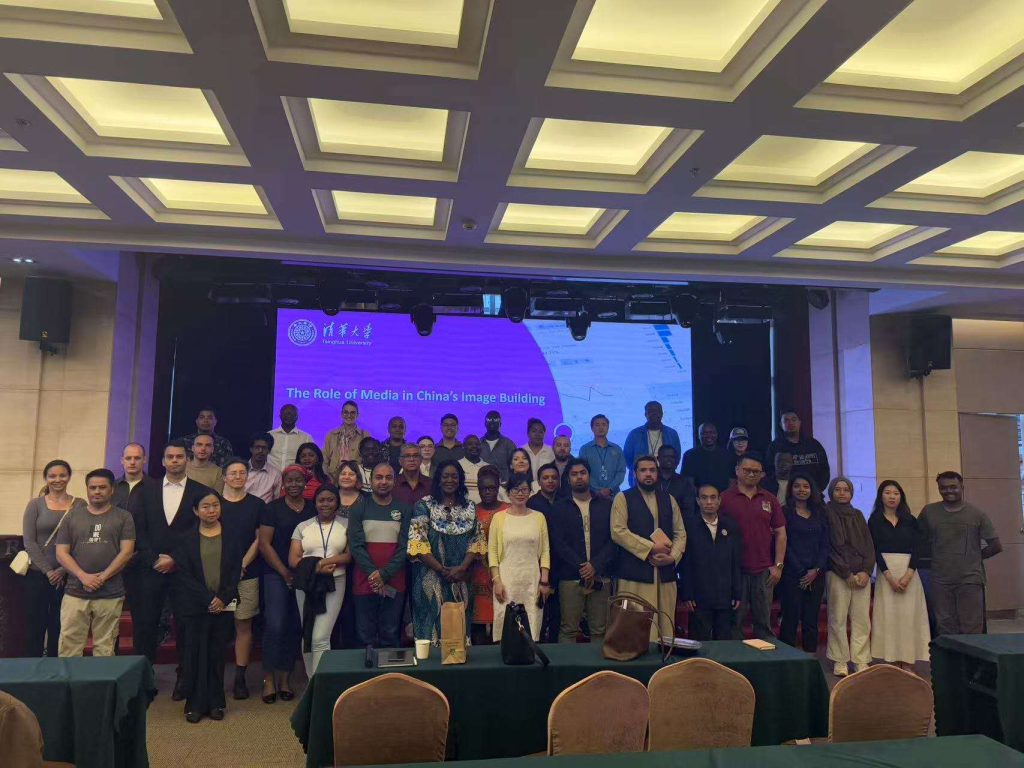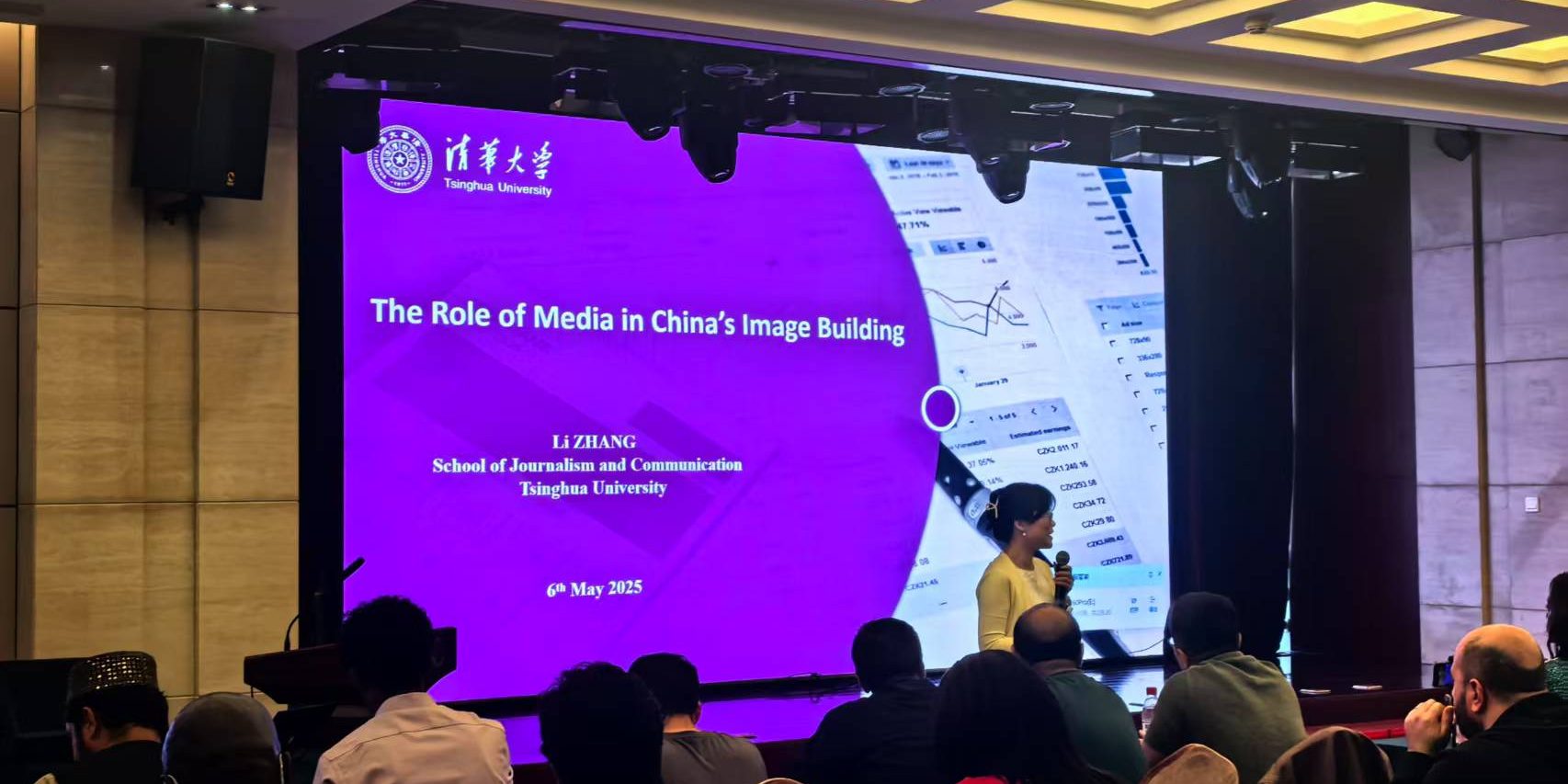CHINA has strategically strengthened its media industry, allowing it to launch globally to showcase the true China amidst the strategic negative narratives advanced against it by the western media.
Professor Li Zhang of China’s Tsinghua University’s School of Journalism and Communication highlighted this when lecturing international journalists on a study tour in China on ‘The Role of Media in China’s Image Building’ in Beijing on Tuesday.
Prof Zhang said the media plays a crucial role in international relations as the art of news is not simply about holding a ‘mirror to reality’, but an artifice used by the western media to advance geopolitical narratives, and China decided that it is now time to resolve its problem of being scolded.
She said in the Mao era, China resolved the problem of ‘being beaten’, and in the Deng era, China resolved the problem of ‘being starved’ and in the present generation, China has risen to resolve the problem of ‘being scolded.’
The beginning of ‘going global’ era
Prof Zhang said the beginning of China’s media ‘going global’ era was June 2009 when the Central Committee of the Communist Party of China (CPC) and the State Council jointly issued the ‘Overall Plan for the Construction of the International Communication Capacity of the Key Media in China from 2009 to 2020’ to promote media ‘going global’ through increasing overseas media institutions, expanding foreign language radio and television channels, and increasing the number of English newspapers.
As a result, she said in 2009, the CPC Central Committee and the State Council of China proposed relevant measures in policy documents, in 2011, China’s General Administration of Press and Publication wrote ‘going global’ into polices, in 2012, the General Administration of Press and Publication issued a special policy document for China’s media ‘going global’ and in 2013, the CPC Central Committee incorporated it into the national system project.
International media cooperations forged
Prof Zhang said in 2014, the Joint Delegation of the Silk Road Economic Belt Media Cooperation Forum was established, the 2014-2018 China-Africa, China-South Asia and Southeast Asia, China-Latin America and the Caribbean News Exchange Center Project was launched and in 2018, the China-Shanghai Cooperation Organization Exchange Platform was formed.
Chinese Media Overseas branches
She said the Xinhua News Agency opened International Internet Special Lines or Channels dedicated to internet data transmission, the People’s Daily launched its overseas edition and the China Media Group China Global Television Network (CGTN) was established.
Merging and Acquisition of Overseas Media Organizations
Prof Zhang said in 2014, China’s Phoenix Publishing and Media Company Limited acquired part of the business of the American Publishing International, in 2015, China’s Alibaba acquired the South China Morning Post, Hong Kong’s leading English language newspaper in 2015 and in 2018, China’s Caixin acquired Quartz, an American news brand.

Furthermore, she said Chinese media opened up accounts on overseas social media platforms.
Prof Zhang said China’s media ‘going global’ is about improving the capacity of international communication, forming the international discourse power that matches China’s comprehensive national strength and international status, enhancing the spreading power and influence of Chinese civilization, telling the story of China well, spreading the voice of China well and showcasing a trustworthy, lovely and respectable image of China.
What are Strategic Narratives?
Prof Zhang said strategic narratives are a means by which political actors construct a shared meaning of the past, present and future of international politics that shapes the behavior of domestic and international actors (Miskimmon, O’Loughlin & Roselle 2013).
The procedures of communication narratives can help explain the major dynamics in international affairs, she added.
Prof Zhang then cited how the European ‘elite’ media – The Guardian and The Economist of the United Kingdom, Le Figaro and Le Mode of France and Germany’s Suddeutsche Zeitung and Der Spiegel negatively projected various aspects of China’s Belt and Road Initiative (BRI) to their audiences and how they have interpreted China’s role in the international order, or how the world order may change with China’s rise and the promotion of the BRI.
She said this led to different negative image of China in Europe such as:
- From 2013 to 2014: ‘Economic influencers facing geopolitical risks’,
- From 2015 to 2016: ‘Political ambitious and diplomatic opportunist who relied on money to pave the way’,
- From 2017 to 2019: ‘Profitable but not necessarily reliable trading partners, environmental disruptors, debt trap creators, neocolonialism practitioners and new order builders’
- In 2020: ‘International lenders, hit by epidemics, leaders in cutting-edge technologies and the loss of trust.’
An example, Prof Zhang gave about the negative reporting by the European media about the BRI-funded highway project in Montenegro, which they termed as the “road to nowhere” without looking at the crucialness of the project in enhancing connectivity and trade, and its enabling of a detour from one of the most dangerous road sections in the Balkans – an old infamous two-lane road with steep inclines and declines that has claimed many lives.
Prof Zhang said contrary to what has been projected about the BRI, it is an ambitious economic visionary initiative that seeks ‘mutual interest and trust’, ‘mutual benefit’ and ‘win-win’ cooperation between China and countries along the Belt and Road.
She said China attaches great importance to Europe as the western part of the BRI, connecting the vibrant East Asian economic circle at one end, and the developed European economic circle at the other.
Under the BRI, the Chinese government hopes to stimulate economic growth through cooperation with more countries, Prof Zhang added.
Prof Zhang said China acknowledges the news media plays an important role in international relations as a source of information, a channel of communication, setting of political agenda, accelerating policy-making and that it can also be an impediment to positive change and China has risen to the challenge of telling its own story and making its voice heard on the global arena.
By DELI-SHARON OSO
In Beijing, China









